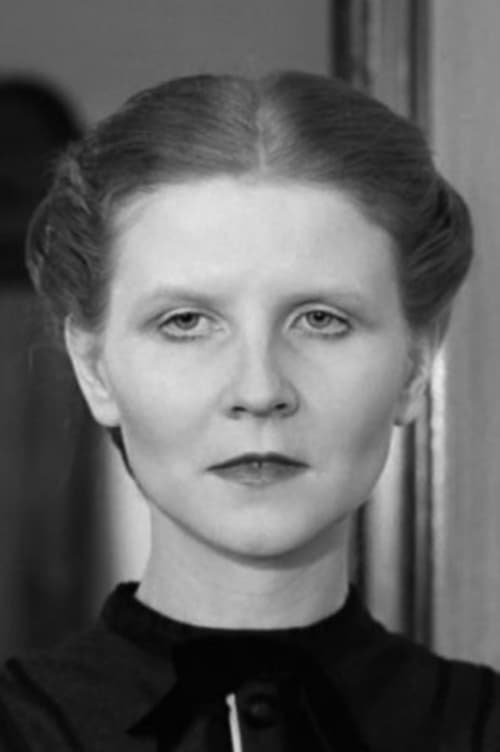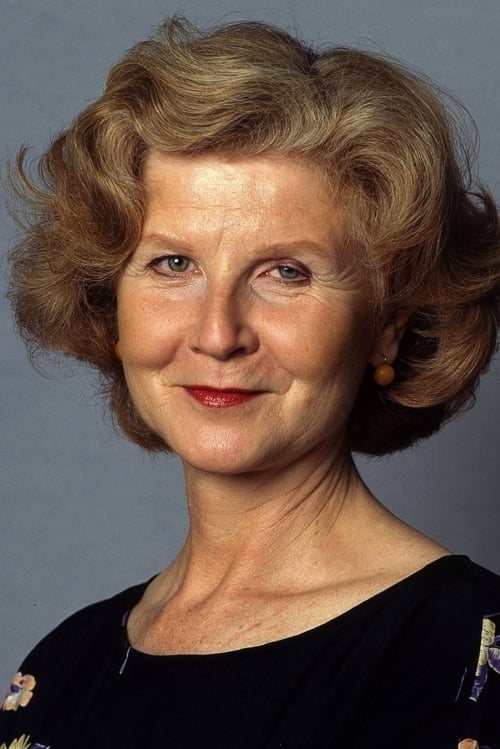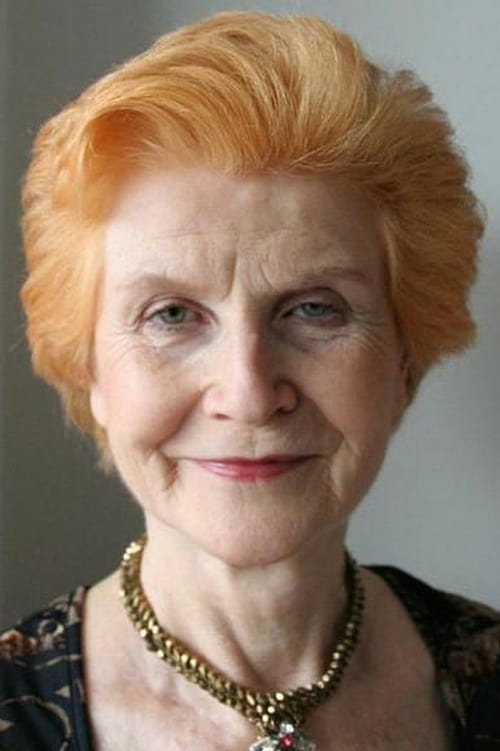
Using unpublished and newly digitalised archive footage and film material, Bettina Böhler has brilliantly assembled this film about the life and work of the exceptional artist Christoph Schlingensief, who died in 2010.
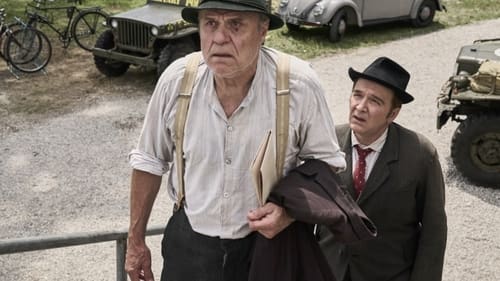
Philomena

Ploppis Oma
Tercera entrega de "Fack ju Göhte", que fue la película alemana más taquillera del año 2013 en su país.
Tras salir de la cárcel, un ladrón de bancos se convierte en maestro, lo que no le librará de encontrarse en medio de una serie de locas aventuras.

Self
Documentary about the making of Rainer Werner Fassbinder's 1972 German television series EIGHT HOURS DON'T MAKE A DAY, featuring interviews with actors Hanna Schygulla, Irm Hermann, Wolfgang Schenck, and Hans Hirschmüller.
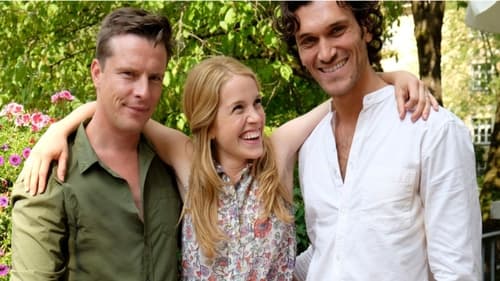
Nora
Married couple Martin and Jackie meet an unconventional Frenchman named Serge, who both are attracted to. But will their marriage survive it?

Hermine Blücher
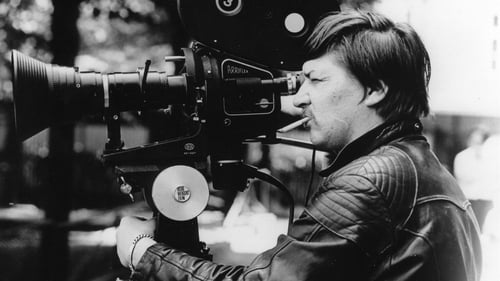
Herself
A film portrait of the influential Bavarian actor, director and screenwriter who publicly confessed
his homosexuality.

Rainer Werner Fassbinder was probably Germany’s most significant post-war director. His swift and dramatic demise at the early age of 37 in 1982 left behind a vacuum in European filmmaking that has yet to be filled, as well as a body of unique, multi-layered and multifarious work of astonishing consistency and rigour. From 1969 onwards, Danish director and film historian Christian Braad Thomsen maintained a close yet respectfully distanced friendship with Fassbinder. Fassbinder – Lieben ohne zu fordern is based on his personal memories as well as a series of conversations and interviews he held with Fassbinder and his mother Lilo in the 1970s.

Johanna von Kirsch
A young woman has the idea of setting up her boyfriend with a very wealthy but sickly lady to claim her inheritance.

Verlegerin
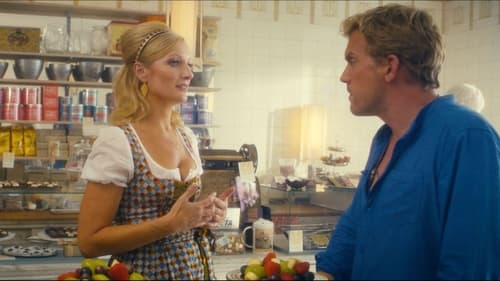
Frau Oberrotter
The 37-year-old Munich survivor and rickshaw driver Basti struck by lightning than one day unexpectedly the 17-year-old Dina from Bitterfeld turns up on his doorstep and quite credible claims to be his daughter. Moreover, they presented him her baby Paul and asks Basti, fearing further turmoil, not only attention, but also money.

Bertha
In the 1980s, an Israeli refugee, deemed a traitor, coaches West Germany's basketball team.

Herself
Ulrike Ottinger is an exceptional filmmaker and artist. Her cinematic universe has influenced entire generations. As a young woman, she brought the international art world to the sleepy town of Konstanz. It all began on the shores of Lake Constance where Ulrike Ottinger was born and where she still often spends time. Filmmaker Brigitte Kramer chose to begin her film at Lake Constance since she too shares Ottinger’s birthplace and a great love of these waters. This is also where the filmmaker’s own artistic development began, not least as a result of her encounter with Ottinger and her work. Other fellow travellers and friends appearing in this film include art historian Katharina Sykora, collector and curator Ingvild Goetz, film historian Ulrich Gregor, philosopher Bernd Scherer and actor Irm Hermann. Using this common ground as a starting point for an exploration of Ottinger’s substantial oeuvre, this documentary provides a keen insight into the artist’s life and work.

Self
Travelling between Germany, France and Morocco, Viola Shafik reconstructs and deconstructs the unknown life story of El Hedi Ben Salem through interviews with his companions and family members as well as archive material. With openness and slight naivety the interviewees explain how “Ali” became an oriental object of projection for the Fassbinder group, while El Hedi Ben Salem, the human being, was overlooked in order to establish the foreigner as “other.” A no-frills examination of a piece of German and Munich film history.

voice
In no less than 180 minutes the film showed frenzied dashes of wild colors and idyllic natural images, of wonderful music and powerful lyricism, which, among others was flawlessly recited by star actors such as Corinna Harfouch, Angela Winkler and Ulrich Matthes. The work treats of the consciousness-defining echoing thunder of modern rock music, of the rock inscriptions of the ancient Egyptians, of the Merseburg magic spells, the author’s childhood impressions, in the latter’s homeland in the forests of the Upper Palatinate, and the ghosts of the Nazi era, who today continue to haunt us in the most vivid manner.
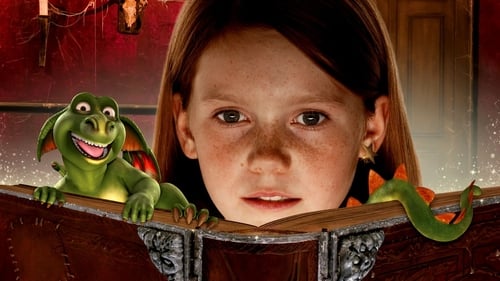
Immobilienmarklerin
Kika es una niña normal y corriente que un día encuentra un libro de magia y empieza a vivir sorprendentes aventuras en compañía de un pequeño dragón llamado Héctor. Todo empieza cuando la mayor de las brujas se esta haciendo vieja, necesita encontrar una joven sucesora, para ello envía a su pequeño y barrigón dragón a buscarla. Pronto Héctor el Dragón llega a casa de la pequeña Kika, una niña que tal vez sea elegida como la nueva Superbruja, aquella que además tiene el deber de cuidar el Gran Libro de Hechizos. Un relato de fantasía y aventura donde la magia blanca deberá triunfar sobre la magia negra que envuelve a un terrible villano. ¿Se convertirá Kika en la siguiente Superbruja?

Oberschwester Ilse
On a summer evening the circuit of the village policeman Krause suddenly went crazy. His doctor immediately prescribed a cure on the Baltic Sea for him. And so Krause and his sisters set off in the legendary "Dübener Ei". In the sanatorium he meets his roommate Rudi - an encounter with far-reaching consequences.
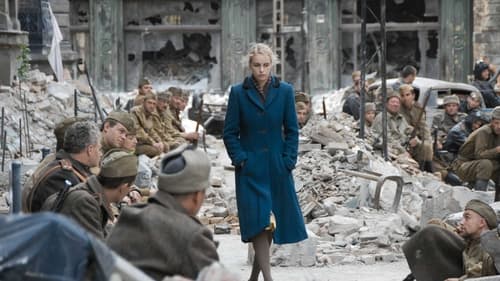
Witwe
Adaptación al cine de un diario escrito por una mujer alemana. En Berlín, en los últimos meses de la Segunda Guerra Mundial (1939-1945), una mujer vive escondida en el sótano de un edificio en ruinas. Su encierro coincide con la llegada de las tropas del Ejército Rojo, que tomaron la ciudad, la saquearon y violaron impune e indiscriminadamente a las mujeres.

Lisbeth Hofer
No overview found.
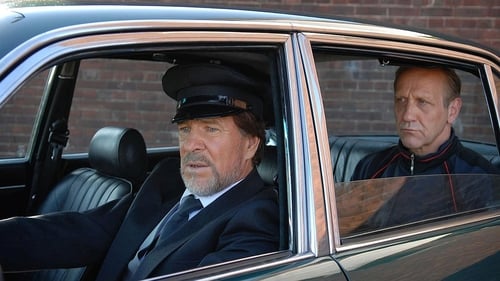
Waltraud Schmitt-Lombard

Self

Frau Speck
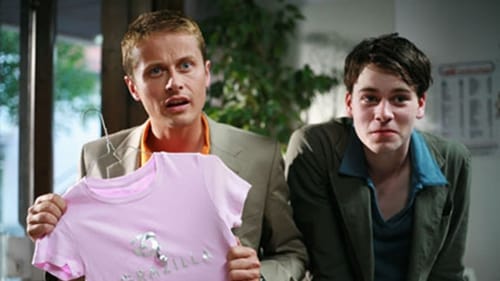
Frau Retzlaff
Wolfang Zenker es un vendedor ambulante de ropa femenina, de mediana edad, que está en un aprieto: su joven competidor a muerte amenaza con robarle sus mejores clientes ya que Zenker ha perdido el carnet de conducir. Agobiado ante la perspectiva de quedar rezagado, decide cancelar las vacaciones de su hijo y emplearlo en contra de su voluntad como conductor. Las cosas van de mal en peor: el banco le persigue, Hacienda da con él, su mujer le deja, su hijo le informa de su homosexualidad ¡y se enamora del adversario de su padre! La familia y el enemigo se reúnen en un clamoroso enfrentamiento final en el que volarán los malos entendidos y las balas.

Anna-Maria Brecht

Christina Dahl

Tante Hildegard
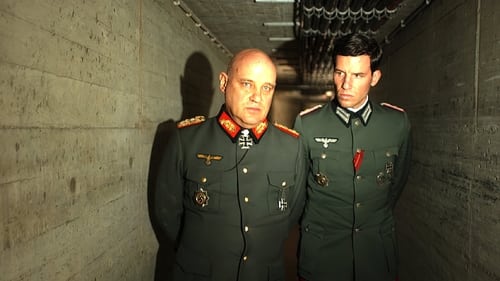
Atractivo documental que reconstruye los últimos días del III Reich, con mezcla de pasajes documentales y secuencias dramatizadas.

Frau Landgraf
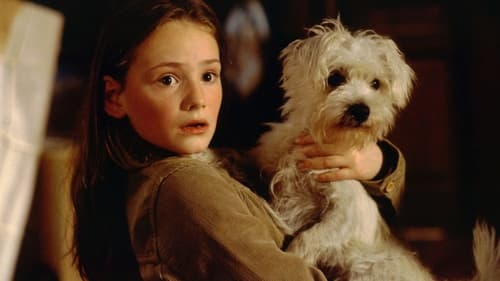
Oma Gerda
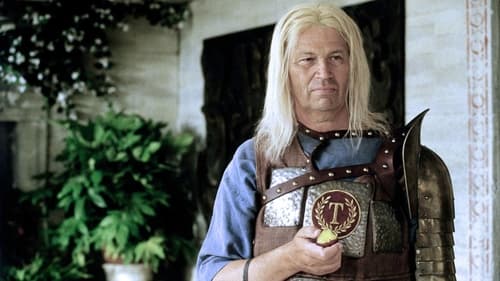
Germanikus Mutter

Frau Hirschfuß
Frank Drannemann, a passionate star chef and single father, is in a professional and private crisis. Since the tragic accidental death of his beloved wife, the soul of the gourmet restaurant "La Vie", business has been bad. Daughter Franzi, handicapped by a stiff knee joint since the accident, doesn't let anyone get near her. The little son Michael also feels neglected, because Frank mainly concentrates on cooking. When preparing his famous lobster or seasoning one of his irresistible sauces, the gourmet chef is in his element. But Frank has lost sight of reality: Since the friendly reception from Frank's wife has been missing, far too few guests appreciate his exquisite cuisine, and so "La Vie" is on the verge of bankruptcy.

Mother (segment "The Enlightenment")
Consta de varios episodios, cada uno de ellos realizado por un director. El tema es el tiempo. Es el complemento de "Ten Minutes Older: The Trumpet".

Schwester Agatha

Herself
A provocative and ironic pamphleteering documentary about the making of Christoph Schlingensief’s Nazi-'Hamlet’ (2001). Both a media event and a form of political action Schlingensief let ex-neo-Nazis play themselves. His provocation in so-called Nazi-free Switzerland was not appreciated and when he added fuel to the flames by calling for the local political party SVP to be banned, his media offensive made front-page news far beyond Switzerland.
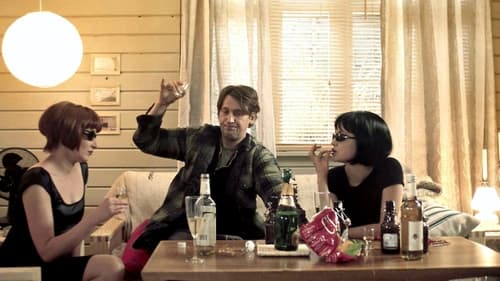
Gefängnispastorin

Herself
An essay film in which filmmaker Rosa von Praunheim interviews "the willing victims of Rainer Werner Fassbinder."

Martin dies, asking Jan to carry out three wishes. Will he be up to making them happen? But, sometimes, one can also be faced with other, unforeseen wishes.

Berenice
Adam es un compositor de éxito con una gran casa de campo al lado de un bonito lago. En motivo de su 60 cumpleaños, Adam prepara algo verdaderamente especial. Invita a las siete mujeres más importantes de su vida, para compartir con ellas siete días maravillosos. En última instancia también asiste su hijo, al que no había visto desde hacía 15 años.

Jasmin Sager

Frau Kiebig
The somewhat awkward student Judith is pursued by bankruptcies, bad luck and mishaps. The failed baby sitting with her sister Rebecca ends with a ruined apartment and the destroyed paintings of her father. In addition, she also loses her job and her friend Holger. In this chaos, she does not notice that the charming neighbor Leo is madly in love with her. But Leo proves to be a true guardian angel and brings a desperate Judith a fairytale surprise. - Heike Makatsch and Dominic Raacke play the leading roles in this enchanting and sensitive love comedy about a modern Cinderella.
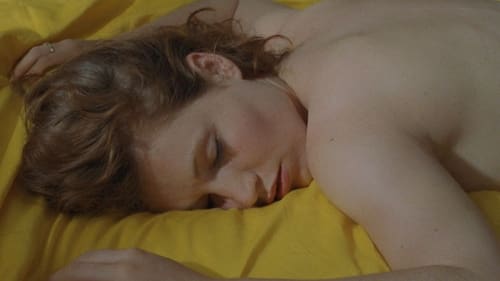
Time traveler Frank is picked up by Luise and Theo while on their way to Berlin. Frank wants to find author Laura Luna and take her to the future with him. Frank finds Laura and they become a couple, but Luise shows up and makes it a menage a trois.

Vermieterin

Esther-Edith
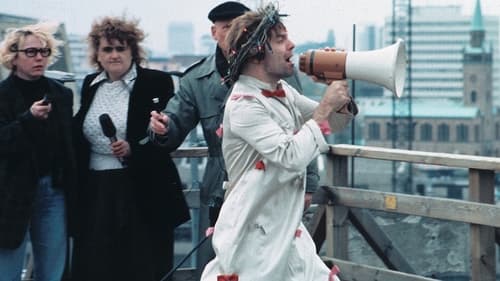
Self / Liselotte Pulver
An eccentric homage to the Rainer Werner Fassbinder days of German filmmaking.

Queen Elizabeth
The British parliament has decided to get rid of the royal family. All of them have to leave the county and so they move to Germany, where they want to live by their distant relatives, the Bettenberg family. But these are not amused about their snobbish visitors, which all want to reside in their little house without doing any work to earn their living.

Frau Kallus

Isolde Krautinger

Frl. Kitzing

This German political drama from iconoclastic filmmaker Herbert Achternbusch takes a slightly askew look at neo-Nazis and the Holocaust. His non-story (a typical trait of Achternbusch films) is divided into three parts. The first introduces Hades, an eccentric half-Jewish coffin maker. Also introduced are the women in his life. The second part depicts different scenes from the city's Jewish ghetto. Included are disturbing film clips from Nazi propaganda footage that shows the naked corpses of starved Jews piled up in the streets with the insinuation that the heartless relatives of the dead would unceremoniously toss them out when they expired. In the third part, Hades is buried at sea. In between, neo-Nazis march unopposed in Munich, Hades battles skinheads, and Hades' shop is repeatedly vandalized. A scene where Hades is fascinated with death is also seen.

Rosl Kattner
A comedy directed by Manfred Stelzer.

Frau Jakob, die böse Tante
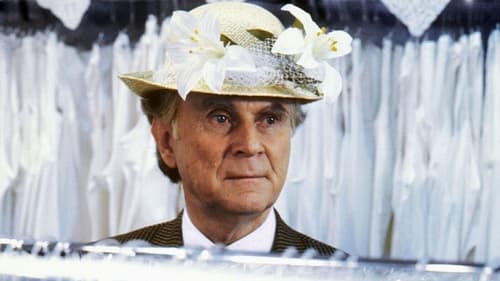
Hedwig
After ordering enough typewriting paper for 40 years, just to get discount, Heinrich Lohse is forced to retire.
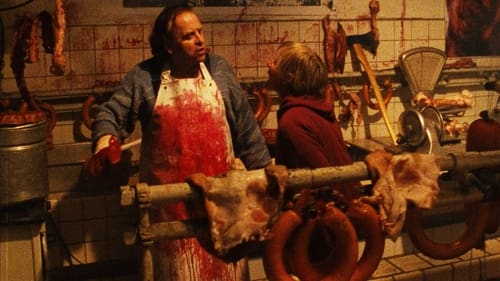
Zöllnerin
Taking place around the German reunification of 1990, a group of East Germans cross the border to visit West Germany and get slaughtered by a psychopathic cannibal family who want to turn them into sausages.

Sie
In a loose set of cabaret pieces, Steffen Mensching and Hans-Eckardt Wenzel - highly acclaimed East German poets, songwriters and clowns - satirize East German life in its final days and the arrival of new times after the fall of the Berlin Wall. The clowns are allowed to leave prison to sing for people outside. As they perform their pieces, however, the country sinks into rebellion, the prison is attacked and looted, and the people chase the clowns away. Latest from the Da-Da-R was the first film made by an artistic production group that had fought for independence within the structures of the state-owned DEFA film studio for years. "Da-Da-R" is a wordplay on the irreverent Dada art movement of the 1920s and the German acronym for East Germany- the DDR.

Gefangene
Ulrich Muhe interpreta a un hombre de negocios alemán que ha nacido completamente sin escrúpulos. Esto le hace un candidato perfecto para tener éxito en los caóticos años posteriores a la I Guerra Mundial. Su historia es totalmente distinta a la de su polo opuesto, un anarquista judío.

Kioskverkäuferin

For many years the old Waller worked as a railwayman. After Waller is informed that "his" track will be closed down and that he will be retired, he walks the route for one last time and starts to remember his life along the way: Beginning in his childhood in the 1920s, he commemorates the death of his great love as well as he recalls the legal battle with his illegitimate daughter.

Secondary-school teacher Mueller-Vohwinkel
En el Transiberiano coinciden personajes muy diversos: Lady Windermere (Delphine Seyrig), una nerviosa maestra alemana (Irm Hermann), una joven francesa emancipada (Inés Sastre), unos cantantes de Broadway, la ostentosa reina Ziegfeld Fanny (Gillian Scalici)...

Elisabeth von Bayern
After the essay "On Marionette theatre" by Heinrich von Kleist.

Bankdirektorin
Pride is the first of the seven deadly sins. The introduction is made through early allegorical forms and figures (triumphal procession, dance of death, Baroque tragedy etc.) The triumphal procession of the giant haystack as a symbol of human vanities becomes a military parade of abrupt, functional and arrogant gestures. The most diverse musical fragments and rhythms intone the montage of details in the staged triumphal procession, juxtaposed with documentary images, including marches, ticker-tape parades and military review.

KZ-Kommandantin
An American filmmaker travels to modern day Berlin to make a film based on a real-life incident from 1942 in which 13 Jewish prisoners from a concentration camp were promised freedom if they appeared in a German propaganda film. Unfortunately, the Germans lied. The psychological process undergone by the modern filmmaker while shooting the story provides the basis of this arty and challenging film.
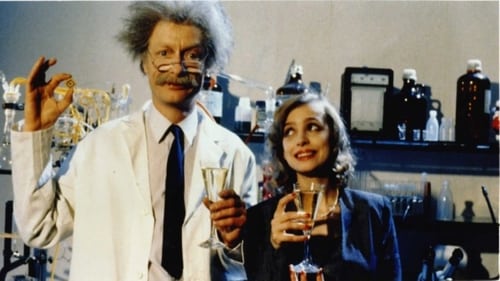
Frau Spalt
The filmmaker René Perraudin made five comedic short films with Otto Sander in the leading role and knits them into a feature film.
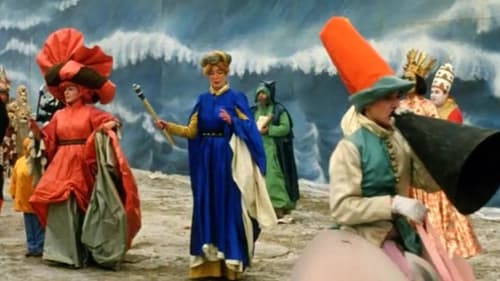
Superbia (segment "Pride")
Seven Women, Seven Sins (1986) represents a quintessential moment in film history. The women filmmakers invited to direct for the seven sins were amongst the world's most renown: Helke Sander (Gluttony), Bette Gordon (Greed), Maxi Cohen (Anger), Chantal Akerman (Sloth), Valie Export (Lust), Laurence Gavron (Envy), and Ulrike Ottinger (Pride). Each filmmaker had the liberty of choosing a sin to interpret as they wished. The final film reflected this diversity, including traditional narrative fiction, experimental video, a musical, a radical documentary, and was delivered in multiple formats from 16, super 16, video and 35mm.
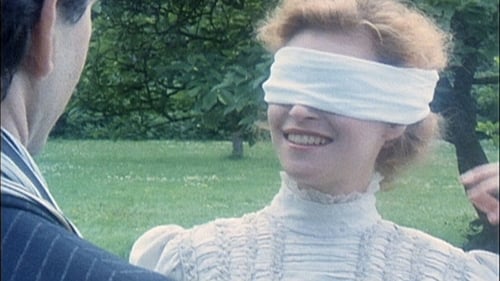
Denmark, by the end of the 19th century. Gov. Dihmer gives his resignation because of his illness. Two friends, a pastor and a physician, try to awaken his willpower and transcend a journey to Italy. Meanwhile, in the homeland, there are political breakthroughs that make little hope for new times.

Winn Wigmore
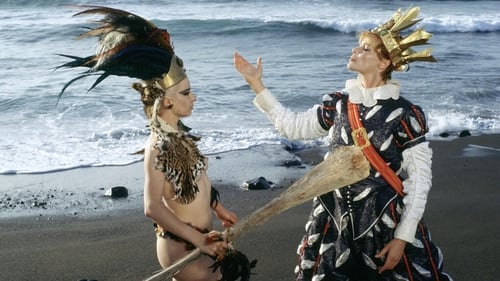
Passat / Norn
Our organization will create a human being whom we can shape and manipulate according to our needs. Dorian Gray: young, rich and handsome. We will make him, seduce him and break him. Ulrike Ottinger, 1984
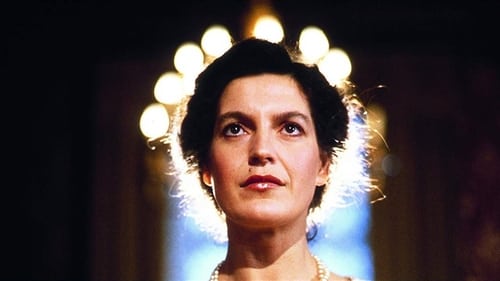
Sabina Angerwolf
Edith runs a left-wing journal and when her marriage starts to fall apart (her husband is unfaithful), she can find no solace in her son who is more of a problem than an asset. On top of heading toward a divorce and being unable to handle her son's asocial tendencies, her neurotic uncle moves in, demanding personalized care. Just to keep her sanity intact, Edith starts writing in her diary to vent her own feelings and ambitions. As her son goes from bad to worse over a five-year period, it turns out that Edith's diary may be of more benefit than she could have ever imagined. In this adaptation of Edith's Diary by Patricia Highsmith, director and writer Hans W. Geissendoerfer has maintained Highsmith's psychologically tormented characters while changing the location and time of her story from the U.S. of the 1960s to Germany in the early 1980s.

Nachbarin

Sozialhelferin
A film by german playwright Tankred Dorst about a case of incest in a rural community.

Else Gebel
At Gestapo head quarters a young woman establishes a relationship with another inmate. This young woman is Sophie Scholl who tells the story of her life and of her resistance movement′s courageous fight against Hitler′s Nazi regime.

Frl. Engelhart
Hans Castorp, fresh from university and about to become a civil engineer, comes to the Sanatorium Berghof in the Swiss Alps to visit his cousin Joachim, an army officer, who is recovering there from tuberculosis. Intending to remain at the Berghof for three weeks, Hans is gradually contaminated by the morbid atmosphere pervading the place. Wishing very much to be considered a patient like the others, he achieves his ends and stays in the sanatorium for ...seven years. During this time, he has enough time to take part in the furious philosophical debates pitting against each other Settembrini, a secular humanist, and Naphta, a totalitarian Jesuit. And to fall in love with the beautiful but enigmatic Clawdia Chauchat. When he is finally discharged in 1914 - along with all the other patients - it is only to plunge into the horrors of World War I.

Ivas Mutter

Film extras take possession of a bogus film production company and acting as ideal world of film to persuade one associates mother-in-law of marriage.
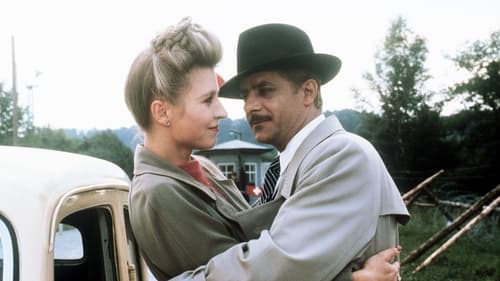
Krankenschwester
Lili Marleen es la historia de una canción que, durante la Segunda Guerra Mundial, llegó a convertirse en un himno, primero del nazismo y después del bando aliado. En 1936, Norbert Schultze, un pianista de cabaret, le puso música a la letra que había escrito años atrás un soldado alemán. Tres años más tarde la grabó en disco una bella pero mediocre cantante, Lale Andersen, que consiguió un éxito y una popularidad tales que los servicios de propaganda del Tercer Reich decidieron hacer suya la canción.

Gletzenbichlerin

Apothekerin
Nik, a released prisoner who started writing in prison, wants to leave his past behind him, but refuses to contact his former girlfriend and her family. Under the name of his jail buddy Henry, he moves in with his pen pal - who has never seen him - and is always watched suspiciously by their roommate. Nik began writing in prison and now seeks contact with the literary culture, even though he feels disgusted by the pompous fuss of this society. He is not without talent and works on a novel in which he minutely describes the abduction of an industrialist. Henry gets shot at the prison breakout and visits Nik to get help from him. He likes his novel plot and wants to put it into action.
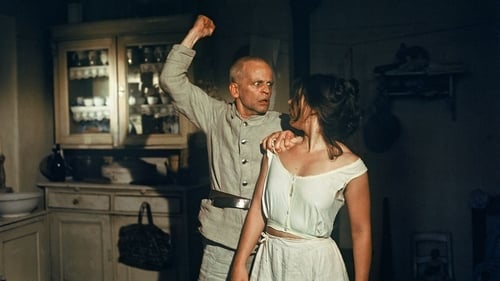
Margret
Después de haber engendrado un hijo ilegítimo con su amante, Marie, el soldado infeliz Franz Woyzeck toma trabajos ocasionales en su pequeño pueblo para proporcionarles dinero extra. Uno de ellos es voluntario para experimentos realizados por un médico local, que pone a Woyzeck en una dieta de guisantes. Esto sirve para llevarlo a la locura, y el descubrimiento de que Marie está involucrada en un romance con el tambor local mayor exacerba la situación. Empujado demasiado lejos, Woyzeck recurre a la violencia.

Margit, Eriks kone
It has hardly been seen before that a 83-year-old actor has starred in a Danish film, but it is the case here, where Kai Holm says goodbye to a long life in film and theater service. He plays an old peasant who on his deathbed is waiting for his son (Jon Bang Carlsen). In a few days he relives the village life, he comes from, and which was marked by a hard and authoritarian upbringing. He is at his father's deathbed despair because it is still impossible to make contact, and in a crisis situation, he recognizes his father's brutality in itself. The film draws a bitter picture of human relationships where dreams while they die, degenerates into power relations.

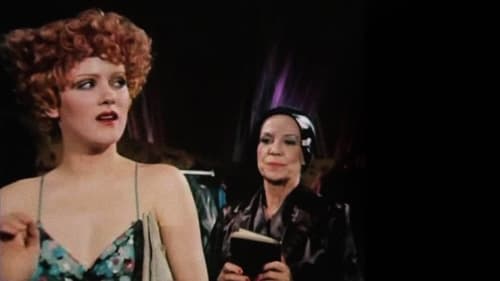
Maniküre Olga/ Miriam
The main characters in this film are wives of rich men who have nothing to do because they have staff – like the cook, the maid, the hairdresser, the manicurist, the governess, the teacher, the tailor etc. – who work for them. Naturally, the wives themselves do not pursue careers, they depend on their husbands’ money. This is why most of their thoughts revolve around the husband. And because the husband only appears as “the” man, there is no man in this film. All women fight for the same man. Those who have one, want to keep him no matter what. And those who do not have one yet only have one goal: To take away somebody else’s husband.

Sali
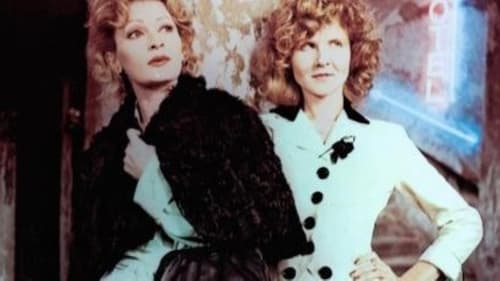
Emma
Beautiful, detached, laconic, consumptive Lily Brest is a streetwalker with few clients. She loves her idle boyfriend Raoul who gambles away what little she earns. The town's power broker, called the rich Jew, discovers she is a good listener, so she's soon busy. Raoul imagines grotesque sex scenes between Lily and the Jew; he leaves her for a man. Her parents, a bitter Fascist who is a cabaret singer in drag and her wheelchair-bound mother, offer no refuge. Even though all have a philosophical bent, the other whores reject Lily because she tolerates everyone, including men. She tires of her lonely life and looks for a way out. Even that act serves the local corrupt powers.
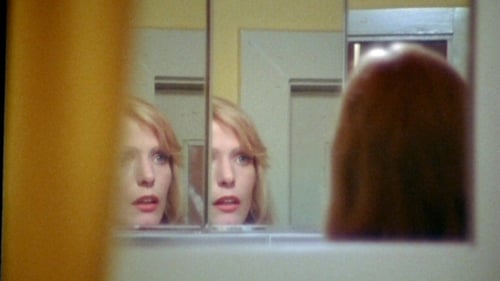
Lore
Margot Staudte es un ama de casa que quiere a su marido Kurt y a su hija Bibi y vive rodeada de comodidades. Pero, hacia el final de su segundo embarazo, se apodera de ella una angustia creciente. Después del parto, las drogas y el alcohol la calman aparentemente, pero su terror no disminuye.
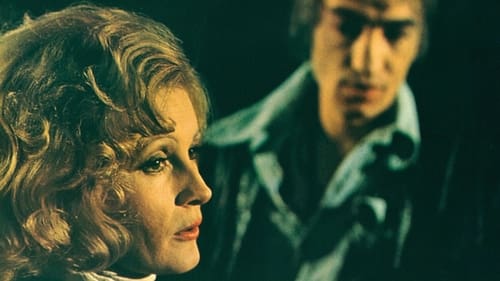
Helene
Un obrero de una planta química, inesperadamente, en un acto de rebelión, asesina al hijo de su jefe, suicidándose a continuación. Este hecho transformará por completo la vida de su mujer (Emma Küsters) quien, con la falta de apoyo que recibe de un hijo (dominado por su mujer) y de una hija (que sólo busca su propia gloria), iniciará una odisea personal en la que tendrá que enfrentarse a manipulaciones mediáticas e ideólogos políticos que buscan utilizarla para sus propios fines, ignorando la única razón que a ella le mueve: defender y devolver la dignidad a la memoria de su marido.
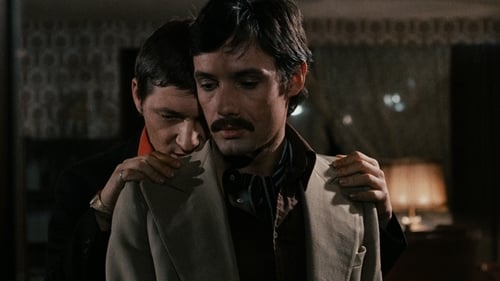
Assistant Director
Franz Biberkopf es un joven homosexual, vulgar, ingenuo y bonachón que, después de trabajar como "Fox, la cabeza parlante" en una feria, gana medio millón de marcos en la lotería, lo que le permite frecuentar círculos gays más selectos. En este exquisito ambiente se enamora de Eugen, hijo de un empresario que posee una imprenta al borde de la bancarrota. Eugen, que ha dejado a su amante, inicia con Franz una relación interesada: en varias ocasiones le saca dinero para la empresa paterna, le hace comprar el piso y los muebles que compartirán, e intenta incluso corregirle sus toscos modales tan alejados de la educación burguesa. Además, programa un viaje a Marrakech.

Madame Cherie / Bar Singer (voice) (uncredited)
Franz Biberkopf es un joven homosexual, vulgar, ingenuo y bonachón que, después de trabajar como "Fox, la cabeza parlante" en una feria, gana medio millón de marcos en la lotería, lo que le permite frecuentar círculos gays más selectos. En este exquisito ambiente se enamora de Eugen, hijo de un empresario que posee una imprenta al borde de la bancarrota. Eugen, que ha dejado a su amante, inicia con Franz una relación interesada: en varias ocasiones le saca dinero para la empresa paterna, le hace comprar el piso y los muebles que compartirán, e intenta incluso corregirle sus toscos modales tan alejados de la educación burguesa. Además, programa un viaje a Marrakech.
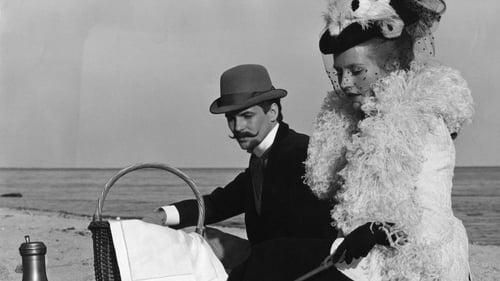
Johanna
Basada en la novela homónima de Theodor Fontane, trata sobre el estricto código moral de los prusianos durante los tiempos de Bismarck. Effi Briest es una joven que se casa con un hombre mayor que ella, el Baron von Instetten. Tras unos años en los que la pareja vive feliz, la amistad de ella con el Mayor Crampas supondrá un conflicto ético que concluirá con un duelo entre el marido ofendido y el supuesto amante.
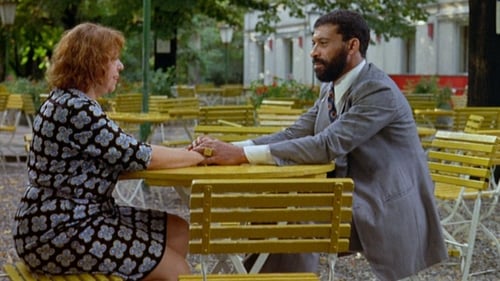
Krista
En un café al que acuden los trabajadores inmigrantes, Emmi Kurowski, una viuda de unos sesenta años, conoce a Salem, un marroquí treintañero. Inducido por la dueña del bar, Salem invita a Emmi a bailar, hablan, la acompaña a casa y, al día siguiente, se queda a vivir con ella. Esta relación provoca un gran escándalo, y las vecinas visitan al propietario del edificio para denunciar a Emmi.

Helene
A childish wife reveals surprising strength when faced with blackmail. Based on A Doll's House by Ibsen, this is a video recording made for German television.

Gnädige
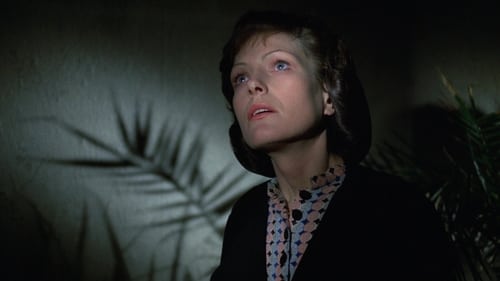
Frau, die Kleider hergibt
En 1925, en Alemania, Fritz Haarmann, es un ladrón homosexual y furtivo, con una licencia especial de la policía. Vende carne en el mercado negro. También mata a los niños y jóvenes, bebe su sangre, cose sus cuerpos y tira sus partes en un río. Ciertamente, lo que vende en el mercado negro es carne humana... Nueva reedición de la historia de "El Vampiro de Düsseldorf", acentuando en este caso su trasfondo de crítica social y explicitando sus elementos sádicos, homosexuales y canibalescos.
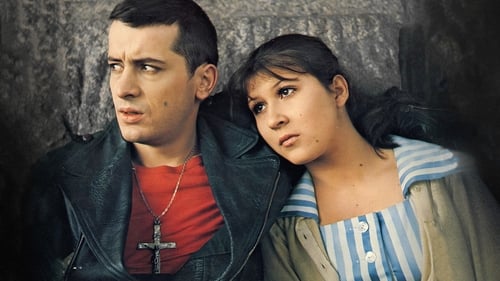
Polizeibeamtin
Based on Franz Xaver Kroetz's play, which is in turn based on a true story, this film by Rainer Werner Fassbinder tells the story of a very young girl who, after persuading a local boy to become her lover, induces the anger of her father, whose incestuous sexual attentions to her have grown unbearable.

Marlene
Petra von Kant, una diseñadora de moda que acaba de separarse de su marido, vive con su secretaria-esclava Marlene (personaje simbólicamente mudo). Cuando su amiga y confidente Sidonie le presenta a Karin, una joven de origen humilde, se enamora locamente de ella y le promete que va a convertirla en una famosa modelo. Sin embargo, Karin la abandona poco tiempo después para irse con su marido que, después de un viaje, acaba de volver a Frankfurt. Petra cae entonces en una profunda depresión.
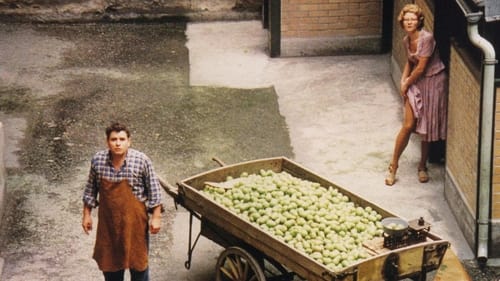
Irmgard Epp
Hans es un frutero ambulante que vende su mercancía por las calles de Múnich. Es un hombre fracasado y que ha perdido la autoestima, entre otras cosas porque tiene una madre dominante que siempre se ha mostado insatisfecha con él. Además, la mujer de su vida lo dejó plantado, y su fría y celosa esposa y su cínica hermana le han destrozado la vida. Su debilidad es tal que se deja arrastrar por la violencia y al alcohol...

die Köchin

Inspired by the real life events of Mathias Kneißl, a marginal man, son of poor farmers from Bavaria, in the late XIX Century. Mathias stole from the riches to give to the poor, becoming a hero for the rural people, and a popular social rebel. He was chased by the police until his unfortunate sentence.

Alma
German filmmaker Rainer Werner Fassbinder directs the made-for-TV melodrama Pioneers in Ingolstadt, based on the play by Marieluise Fleisser. The film opens as a parade of soldiers are marching through a town square singing patriotic songs. Alma (Irm Hermann) and Berta (Hanna Schygulla) are watching them and musing about their ideas on men and relationships. The soldiers (often referred to as pioneers) have been given the task of building a bridge in the town. Alma seems to understand that the soldiers only want her for short sexual encounters, so she's prepared to live her life accordingly. Meanwhile, romantic Berta falls in love with self-centered soldier Karl (Harry Baer), who all but tells her to get lost. The soldiers get drunk and beat up a random passerby. The women grow to hate Alma for her acceptance of life as a sex object. Naïve Berta is ultimately humiliated.
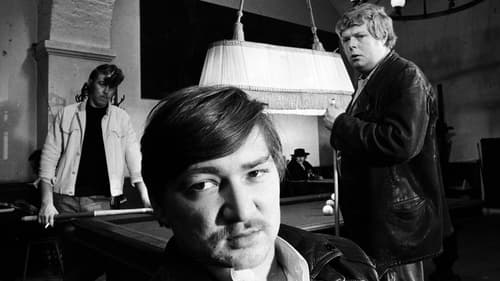
Whore
Ricky returns to Munich from Vietnam and is promptly hired as a contract killer.
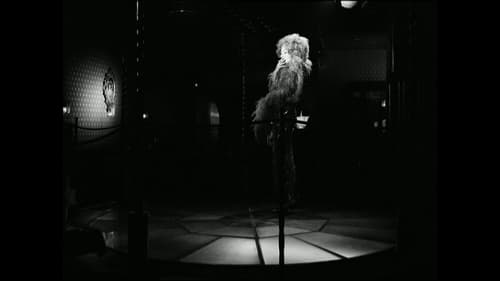
Barkeeper
A man is released from prison and finds the society on the outside less than appealing. With several women as well as the police on his tail, he sets out to find an old friend.
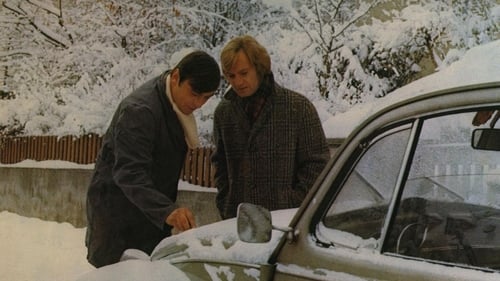
Nachbarin
El íntimo escepticismo del señor R., símbolo de una burguesía acomodada que dispone de un trabajo seguro, un hogar confortable, mujer e hijos, estallará en una reacción brutal contra la disciplina cotidiana.

Herself
"End of the Commune"/"Ende einer kommune" is a great 49 min. long movie made in 1969 about Fassbinder and the early years of the legendary Antiteater he was a member/leader of. You can here see and hear some of the actors he was going to use in his movies for the next years. The movie shows rehearsals for his play "The Coffehouse" which also became a television-movie, and you can watch unique footage from the 19th Film-Festival in Berlin (1969) where "Love is Colder Than Death" were shown. As told in this documentary, his first feature-movie were given a cold shoulder by many of the journalists and visitors at the festival. You can in "End of the Commune" watch Fassbinder and actor Ulli Lommel walk out on stage after the opening of "Love is Colder than Death", while a man in the audience is shouting "Out with the director!". In this interesting documentary Fassbinder also talks a lot about his father which was a respectable doctor.
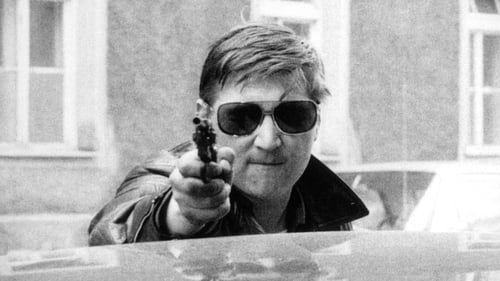
Sonnenbrillenverkäuferin
A Franz (Fassbinder), un chulo de poca monta cuya novia es una prostituta (Hanna Schygulla), se le plantea un problema. Acostumbrado a "trabajar" por cuenta y riesgo propios, un sindicato de gánsteres le pide que actúe para ellos, pero él se niega a ingresar en la organización criminal. Ésta lo hace vigilar por un confidente para doblegar su voluntad. Mientras la organización lo tiene secuestrado, entre él y el espía Bruno (Ulli Lommel) surge espontáneamente una relación de amistad. Franz se siente fascinado por la belleza angelical de Bruno...
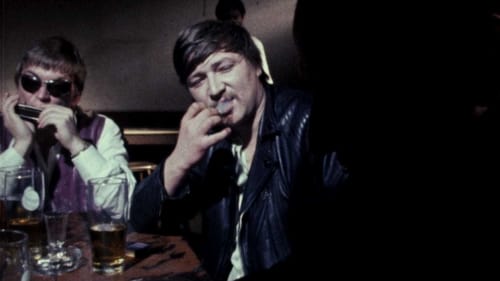
Hausfrau
Volker Schlöndorff transposes Bertolt Brecht’s late-expressionist work to latter-day 1969. Poet and anarchist Baal lives in an attic and reads his poems to cab drivers. At first feted and later rejected by bourgeois society, Baal roams through forests and along motorways, greedy for schnapps, cigarettes, women and men: ‘You have to let out the beast, let him out into the sunlight.’ After impregnating a young actress he soon comes to regard her as a millstone round his neck. He stabs a friend to death and dies alone. ‘You are useless, mangy and wild, you beast, you crawl through the lowest boughs of the tree.’

Mädchen auf Gocartbahn
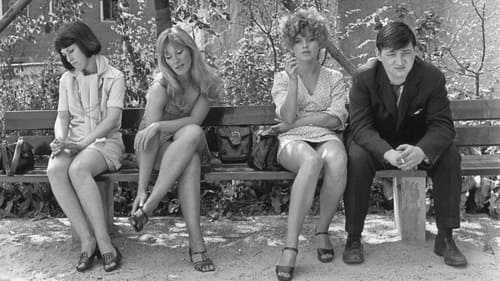
Elisabeth
Jorgos, un inmigrante griego, se une a un grupo de jóvenes que por lo general pierden el tiempo. Este extranjero despierta la hostilidad y los celos entre ellos, y es insultado como "un Comunista" y "el perro griego". Después de haber sido atacado, Jorgos le confiesa a María su deseo de volver a casa.

Desiree
Three sequences are linked together in this short film by Straub; the first sequence is a long tracking shot from a car of prostitutes plying their trade on the night-time streets of Germany; the second is a staged play, cut down to 10 minutes by Straub and photographed in a single take; the final sequence covers the marriage of James and Lilith, and Lilith’s subsequent execution of her pimp, played by Rainer Werner Fassbinder. "The film is a look entirely at Western decadence" - Jean-Marie Straub.
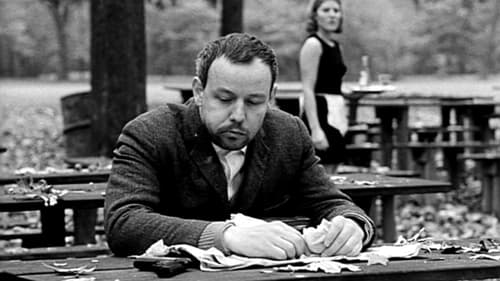
Ms M. Piguet
A tramp finds a gun lying in the street.
